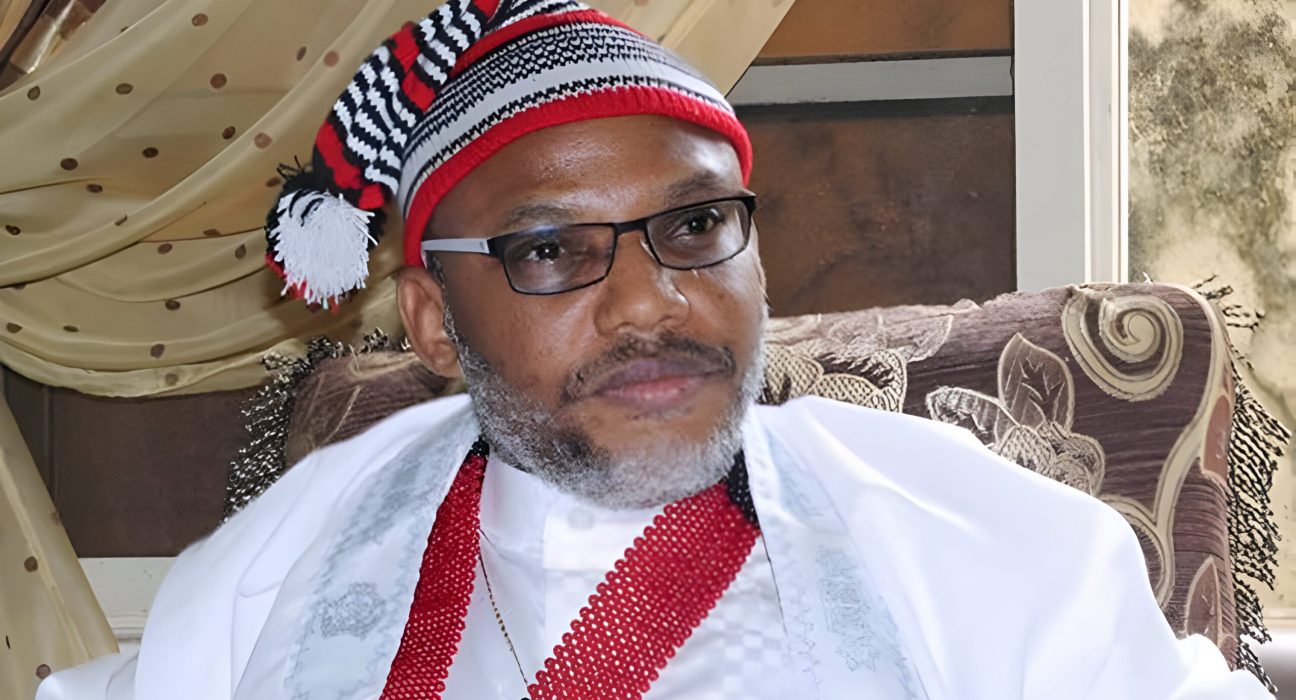The Federal High Court in Abuja has sentenced the leader of the Indigenous People of Biafra (IPOB), Nnamdi Kanu, to life imprisonment after finding him guilty on seven terrorism-related charges. Justice James Omotosho delivered the ruling on Thursday, concluding that prosecutors had successfully proven Kanu’s involvement in inciting violence, enforcing illegal sit-at-home orders, threatening diplomatic missions, and directing attacks on security personnel and government facilities.
Although the prosecution had requested the death penalty for several of the charges, Justice Omotosho declined, stating that he was persuaded by Christian teachings and global opposition to capital punishment. He instead imposed life sentences on counts 1, 4, 5, and 6, while sentencing Kanu to 20 years for membership of IPOB and five years for the illegal importation of a radio transmitter used in his broadcasts. All the sentences are to run concurrently.
The judge also ordered that Kanu be held in protective custody due to what he described as the convict’s “tendency toward violence.” He barred him from using digital devices, saying they were instrumental in spreading inciting messages that contributed to unrest in the South-East. The court further directed the forfeiture of the radio transmitter Kanu allegedly smuggled into the country in 2015.
Justice Omotosho criticised Kanu’s conduct throughout the decade-long trial, describing him as arrogant, unremorseful, and disruptive—even noting the defendant’s unruly behaviour during Thursday’s proceedings, which led to his removal from the courtroom. Despite this, the judge said the court would not base its sentence on Kanu’s behaviour but instead focus on the offences proved in court.
Kanu’s conviction follows years of violent episodes linked to IPOB’s secessionist campaign for an independent Biafra. The judgment drew parallels with the recent imprisonment of another Biafra agitator, Simon Ekpa, who was sentenced to six years in Finland for terrorism-related activities.
The court’s verdict has already triggered reactions from policymakers and legal experts. Kanu’s legal team has indicated that it will file an appeal, maintaining that he did not commit any crime and that his actions were rooted in the right to self-determination. However, the judge stressed that self-determination could not be pursued through violence, intimidation, or actions that destabilise national security.

